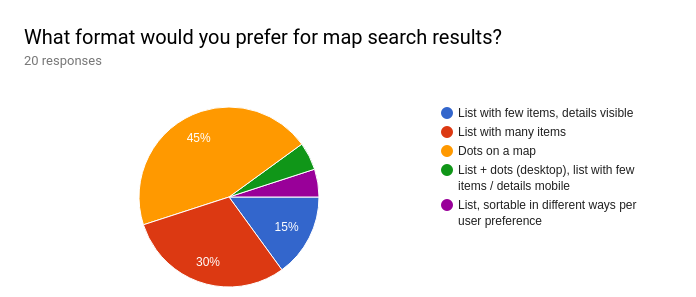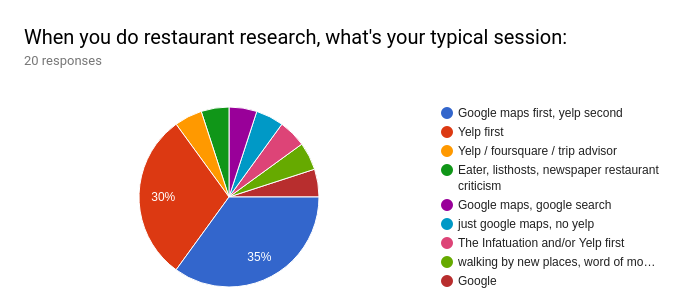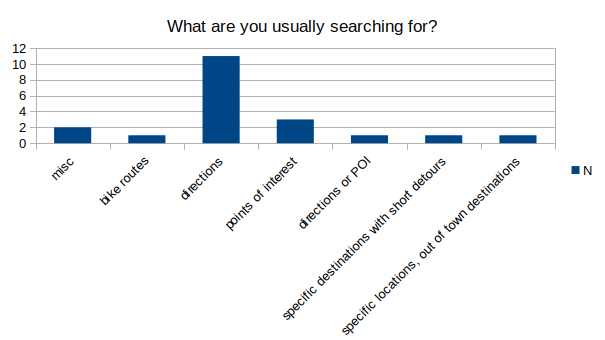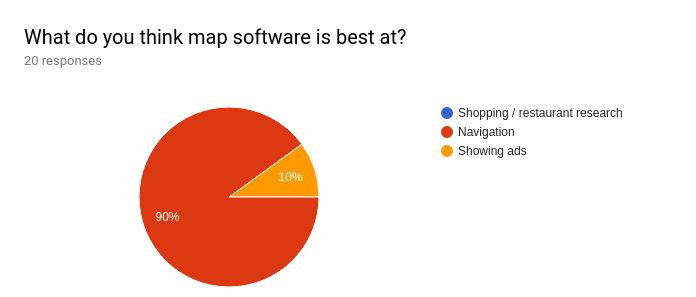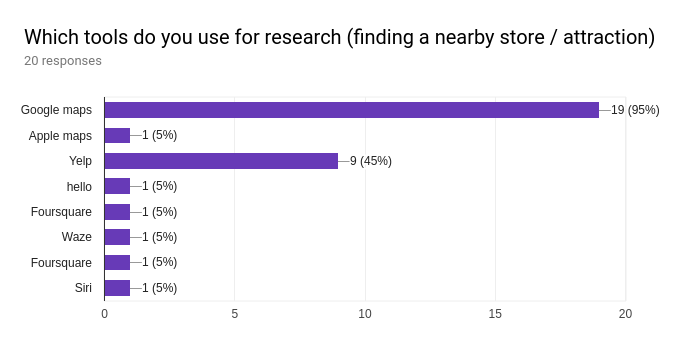Maps are bad at decision support
- Survey says
- Output format is confusingly bad
- Maps sucks because it’s ad-supported
- Appendix 1: survey results
I ran a survey. It seems like maps tools are ready for disruption by someone who can get ‘search nearby’ to work properly, so that users can finally decide where to go for dinner.
Survey says
I ran a small-N, friends & family survey of how people use maps on their phone. The highlights:
- Usually searching for: I expected people to be searching for nearby attractions but my respondents overwhelmingly chose ‘directions’.
- Restaurant research: nobody uses just google maps for this. Some start with yelp, others end up there. The most sophisticated respondents (professional chefs, foodies, review junkies) use multiple sources.
- Finding a nearby attraction: 95% of respondents use G maps for this but half also use yelp.
- Output format: people are split. Half prefer dots on a map.
- Best at: nobody chose ‘restaurant research’. Maps is very much viewed as a navigation tool.
Bottom line: my respondents are using google maps for ‘search nearby’ even though they think it sucks at that!
Nothing (including you, yelp) is ‘better enough’ on mobile to use instead of google maps.
Navigation is perceived to work well.
Output format is confusingly bad
Clicking any single result in google maps makes it relatively hard to get back to search results and often resets the map if you’ve been scrolling. On web, it’s difficult to open tabs for ‘search nearby’ results or see a lot of them in dense layout on one screen.
My guess is that all these behaviors are optimized for (1) ad clicks and (2) the average user’s usage pattern. Unfortunately that has resulted in a product that isn’t optimized for me finding a bar, restaurant, or nearest place to buy an X (for any X). And even less useful for comparison / ranking.
My survey respondents are split on how they want to see results (half dots on map, one quarter short list, one quarter dense list). If G maps users as a whole have the same split, that would explain why the product can’t cater to power users.
Power users are hurting in the mobile era.
Maps sucks because it’s ad-supported
People talk about a company’s DNA to explain why companies are inflexible. (recent Om Malik article on facebook’s DNA). I think G maps is an example of this.
There are a lot of good ad-supported services to create, but consumer decision support and ads may be incompatible. You can’t simultaneously show me the best 5 restaurants nearby and show me a sponsored placement at the top; with limited real estate you have to do one or the other.
Showing ads on top of fictional television is one thing, but showing ads for where to go for dinner when you’re trying to decide where to go for dinner is fundamentally different.
I hope these companies find a way to charge consumers for their service because as long as it’s free it will continue to suck.
Appendix 1: survey results
